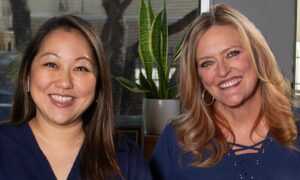By Arian Fartash, OD

August 23, 2017
Much has been written about Millennials, those of us born between 1982 and 2002, in how to attract and keep us as patients. But what about attracting Millennial ODs as associates?
I am a freelance optometrist in California, seven years in practice, and I also have been a full-time associate OD. In that time, I have developed the following checklist for evaluating employment opportunities.
Online Reviews
When thinking of joining a new practice, I first look at online reviews on Yelp. I do not always judge the practice by these surface impressions, but it’s a good place to start when you have never been to an office.
What patients have to say about their experiences says a lot about a practice. Not all reviews are representative of how an office operates, but you can see patterns that may indicate a problem, such as online reviews consistently noting long wait times, or frequent mentions of unfriendly staff. I also Google the owner-doctor to see how patients feel about their exams.
One office I applied to had six reviews only, and four were awful, but were also from years ago. I couldn’t take the reviews seriously because they were so outdated and so few. I ended up working at that practice for five years, and helped them promote use of Yelp to patients, so their reviews would be more current and positive.
Patient Flow
After reading online reviews, I always schedule a working interview. This is important to find out if the office will match your style of practicing. If, after spending the day practicing in an office, I realize it’s not for me, there usually are no hard feelings if I decide not to come back. Working interviews are paid, with the rate negotiated between applicant-OD and practice.
I recently started working at a new practice a few times a month, and I was not happy with the flow of patients.
I felt like I was unable to connect, and give my best optometric guidance, with the large number of patients scheduled. For that reason, I politely declined the offer of a full-time position. There is nothing wrong with a practice that chooses to see a large volume of patients. I respect that mode of practice, but I know it’s not a good fit for me.
A working interview also is helpful from the practice’s perspective. It gives the practice a chance to see if the doctor is able to connect with patients, and how well the doctor gets along with the other doctors and support staff. Key questions to ask about a prospective associate or freelance OD: How knowledgeable is the doctor about products? Can the doctor handle the office and patients when the managing doctor is not there? And, importantly, does the prospective associate treat the practice as their own?
Salary Potential
I set my own per diem. I usually do not budge. It is important for doctors to know their worth, and not settle for less. If an office is not willing to meet our pay standards, then most of us feel it’s OK to move on to other options. I usually ask for a bonus structure, as well. I want the practice owner to feel like I am contributing to production.
Bonuses help motivate us. I find myself educating patients more about spectacle lens upgrades at offices that offer a bonus structure.
For example, an arrangement could be made in which bonuses for associates are given for days the office makes over $3,000 in production. For instance, $3,000 in production practice-wide would mean a $50 bonus for the associate, and every $250, the bonus goes up another $50.
Schedule Flexibility
I used to work weekends for many years. However, when I got married, I noticed I wasn’t able to spend much time with my husband, so I made the decision to only work four days a week. At that point in my career, I knew I had a lot to offer the offices I worked at, so I asked for a raise to compensate the lost day. In the end, it worked out great, and I feel refreshed after my weekends. It may be harder to find jobs that are only weekdays, but for me, it’s worth it.
 Arian Fartash, OD, is a freelance optometrist in California, who has also gained expertise in social media marketing. To contact: arianfartashod@gmail.com
Arian Fartash, OD, is a freelance optometrist in California, who has also gained expertise in social media marketing. To contact: arianfartashod@gmail.com

























